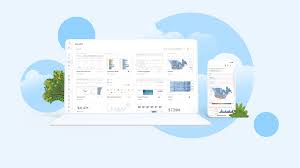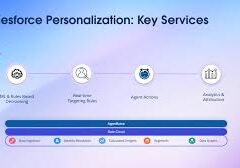Winning in the Data Economy
In the rapidly growing data economy, enterprises are eager to gain a competitive edge. This data economy, which revolves around the global supply and demand for data and data-driven applications, continues to expand as more organizations seek critical insights to drive their success. Scale Data and Analytics in the Cloud.
The value of data isn’t a new concept. Companies acquired other companies for the sole purpose of obtaining their data – customers, prospects, etc. The value of actionable data is a bit newer. Whereas we once marketed to prospects based primarily on historical data, data-driven applications let us market at the right time on the right channel with the right message.
To understand what it takes to excel in the new data economy, Tableau partner Snowflake surveyed business and technology leaders. Their research highlighted the characteristics of the leaders and laggards, emphasizing the importance of a strong data strategy for achieving successful outcomes. Industries like financial services, health and life sciences, and retail are still struggling to fully benefit from the data economy, often finding it challenging to unlock the full value of their data. Here are four key actions that can help organizations win in today’s data economy and achieve tangible results:
1. Create a Strong Data Culture
A robust data culture is foundational for realizing the value of data. Organizations that prioritize becoming data-driven see significant benefits:
- Leadership prioritizes data initiatives, ensuring everyone understands and leverages data to achieve business goals.
- Teams use data to make better, faster decisions, addressing key business challenges with critical insights.
- Modernizing data and analytics, particularly through cloud adoption, enhances access, innovation, agility, and resilience.
Jennifer Belissent, Principal Data Strategist at Snowflake, emphasizes how a cloud-enabled data culture accelerates time-to-value by breaking down organizational silos. Tableau offers a playbook to help organizations build, expand, and mature their data capabilities.
2. Adopt an AI-Driven, Enterprise-Ready Analytics Platform
Data leaders utilize AI-driven enterprise analytics platforms like Tableau, which provide trusted predictions and insights to scale decision-making. Traditional solutions often fall short in delivering speed to insight and self-service capabilities. Tableau, particularly with Tableau Cloud, offers an easy-to-scale solution that manages and analyzes data across various sources, supporting meaningful impact and agility.
Tableau Cloud’s Advanced Management capabilities enhance security, usability, and scalability. Additionally, Tableau Accelerators—over 100 ready-to-use, in-product dashboard starters—support various industries, enabling comprehensive analysis and problem-solving.
3. Migrate to the Cloud
Cloud adoption is accelerating as organizations pursue data-driven digital transformations. The cloud offers flexibility, agility, scalability, reduced IT overhead, and increased resilience and performance. Key considerations for cloud migration include:
- Identifying problems to be solved.
- Understanding how the cloud enables new approaches.
- Determining which systems need to change.
- Ensuring effective user experiences.
- Measuring and encouraging ongoing cloud-native analytics value.
Whether opting for on-premise, hybrid, or full cloud migration, Tableau connects to data wherever it resides, fueling insights across the business. Tableau’s own journey to the cloud involved evaluating criteria, enhancing collaboration, and applying new data management processes, resulting in a unified source of truth.
4. Choose the Right Partners to Scale Cloud-Native Analytics
Selecting partners that facilitate cloud-native analytics is crucial. Ideal partners should offer:
- Secure data storage and scalable analytics.
- Built-for-the-cloud capabilities and robust connections.
- Measurable outcomes, such as improved performance, customer relationships, market opportunities, and data monetization.
Snowflake and Tableau exemplify these qualities, addressing data and organizational demands. Snowflake provides extensive data storage and processing, while Tableau offers intuitive, self-service analytics. This partnership has helped enterprises like Cart.com achieve significant revenue growth by embedding Tableau analytics in Snowflake’s platform.
Embrace the Data Economy with Cloud-Native Analytics
Regardless of where your organization stands in the data economy, taking steps to leverage cloud-native analytics can unlock numerous opportunities. Tableau continues to invest in its platform to help organizations thrive with data in the cloud, offering expert advice, solutions, and valuable partnerships. By adopting these strategies, your organization can become a leader in the data economy and achieve remarkable results.













